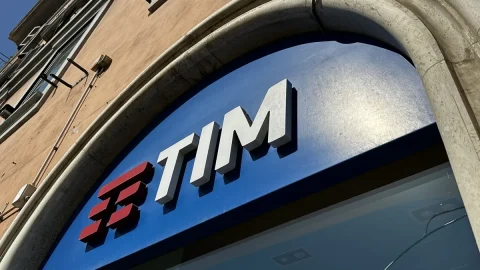Renewables, biomethane, energy efficiency and diversification of gas imports. It's the formula for speeding up energy transformation of our country and achieve independence from gas as soon as possible, above all in the light of the conflict in Ukraine and a possible stop in supplies from Moscow. This is what emerges during the presentation Workshop of the Agici Utilities Observatory – Accenture of study "Italy and energy dependence: diversifying sources and investing in renewables for a less constrained and more decarbonised future”, which outlines two possible scenarios capable of anticipating the objectives set for 2030 on decarbonisation.
“The transformation of the global energy market imposes great challenges on the entire country system”. She said it Marco Carta, CEO of Agici. “Italy, for too long paralyzed by cross vetoes, must quickly return to investing in infrastructure for energy security and decarbonisation – added Carta -. National and local institutions have the task of giving impetus to this transformation with firmness and foresight. The goal is to radically change the approach, finally passing from a policy of Not Doing to one of Doing”.
The two scenarios to accelerate Italy's energy transformation
There are two ways forward: one more rapid and concentrated, the other more moderate. Scenario A,"green acceleration”, focuses attention on interventions that allow a reduction in the demand for natural gas, through a strong acceleration on renewables (over the next 3 years - 20 Gw/year), aggressive targets for the production of biomethane (8 bcm by 2030) and maintenance of a high rate of energy efficiency interventions (up to 1,5% of annual rate). Scenario B,"progressive growth”, the development of renewables proceeds with a more moderate acceleration (from 2 to 15 Gw/year in the period 2022-2030), the biomethane production target is more limited (3 bcm) and the rate of energy efficiency interventions reaches up to 1%.
Although they have the same elements, the results would be very different. In the first case, greater results would be obtained in less time (and certainly what our country currently needs). Scenario A could lead to a cumulative reduction in gas demand of 190 bcm and 68 Mt of CO2 in the period 2022-2030, allowing the achievement of the decarbonization goals well in advance of 2030, but above all the achievement of independence from Russian gas by 2023, minimizing coal-fired thermoelectric production without resorting to new infrastructures regasification and expanding the capacity of existing pipelines.
More renewables: focus on wind and photovoltaic energy
Claudius Arcudi, head of Energy & Utility at Accenture Italy, declares: “The new international context requires us to accelerate on decarbonisation and energy independence. The scenario that foresees a strong increase in renewable energies and biofuels is a great opportunity for the competitiveness of our country system. Utilities and energy companies must create a virtuous ecosystem around onshore and offshore renewables, in particular Aeolian e PV. Investments must be part of a systemic approach to decarbonisation which is possible today thanks to digitalisation. The internet of things, artificial intelligence and big data will be the critical success factors of this new energy system. Accenture is an ecosystem player in implementing the energy transition. It makes skills, assets, market experience and the possibility of drawing on the main foreign experiences available to organizations".
But to accelerate the energy transition, second Sandro Bacán – Accenture Innovation Lead, “the enabling elements necessary for this transformation are of a regulatory, commercial and technological innovation nature. With reference, in particular, to the technological aspects, it is essential that the acceleration path towards renewables be accompanied by an adaptation of the network infrastructures, leveraging on data to optimize investments and the accuracy of the forecasts on the producibility of the plants, in way to maximize the use of renewables”.
Manager Utilities 2021 Awards: here are the winners
During the twenty-second Agici-Accenture Utilities Workshop, the “Andrea Gilardoni” Utilities Manager Awards were presented by the magazine Management delle Utilities e delle Infrastrutture (MUI), who distinguished themselves for their contribution to the development of the system. Titled in memory of Prof. Andrea Gilardoni. The winners:
- Energy Category: Nicholas Monti, CEO of Edison for "Edison's new strategy focused on sustainability and energy transition".
- Category Local Public Services: Gianni Armani, CEO of Iren, for "the new Iren business plan and for the contribution to the development of infrastructure in Italy"
- Special Recognition: Alexander Russo, president and managing director of the CAP Group, for "the innovation policies and efficient in-house management of the Cap Group".





